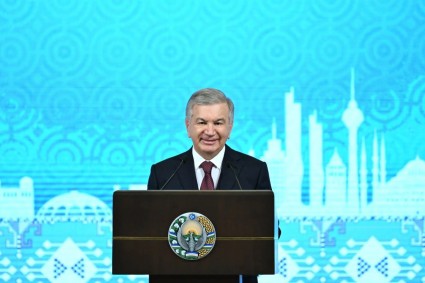The Senate at the 26th plenary session on Saturday unanimously approved the State Civil Service Bill. The Bill was developed as a document of direct action and is aimed at comprehensive legal regulation of the civil service. It applies only to civil servants performing activities in positions included in the state register.
“This is a very important Bill, the adoption of which has been expected for many years. The Bill that our people have been waiting for,” said Tanzila Narbayeva, chairperson of the Senate.
The Bill defines the status, rights and obligations of civil servants, as well as the principles of hiring and mechanisms for preventing corruption and conflicts of interest in this area. It is fixed that serving the people is one of the basic principles of the state civil service.
The powers of state bodies in the regulation of the state civil service, including the president, the Cabinet of Ministers and other structures, are defined. The authorized body in the field of civil service is the Civil Service Development Agency under the President.
The agency said in a statement that the law will apply to more than 100,000 people working in central governance and local authorities.
The document establishes that civil servants are hired on the basis of an independent competition of candidates, and their performance is evaluated on the basis of the most key performance indicators (KPI). The criteria for evaluating the effectiveness and competence of civil servants, the requirements for improving their qualifications are determined.
Persons who have committed corruption crimes, according to the law, shall not be hired to the state civil service.
The law creates a legal basis for the prevention of corruption offenses and conflicts of interest in the civil service.
The Anti-Corruption Agency clarifies that the law contains norms for the implementation of anti-corruption measures in state bodies, as well as restrictions for civil servants.
Among the duties of civil servants are the observance of the rules of ethics, the prevention of conflicts of interest, the requirements to be impartial and fair, not to use their position for personal purposes, to declare income and property on time, to use state property only for official purposes.
A separate chapter on the fight against corruption in the civil service spells out, among other things, such preventive mechanisms as the rules for receiving and giving gifts by civil servants, as well as the requirement for the rotation of civil servants holding positions with a high risk of corruption.
“It must be admitted that before that there were no such regulations in public administration or they were not regulated by law, which caused nepotism, injustice, corruption risks and a decrease in the confidence of individual citizens in public service,” said Akmal Burkhanov, head of the Anti-Corruption Agency.
The law will take effect three months after signing by the President of Uzbekistan.















